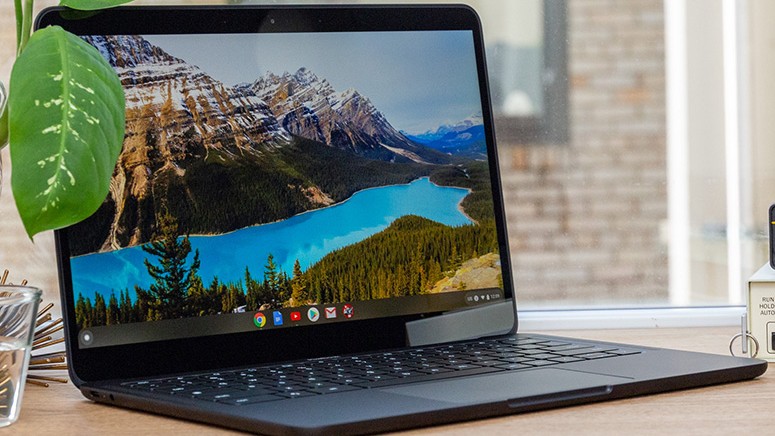The 4K PixelBook Go is $1,400 of overkill
About that price...ouch

Sign up to receive The Snapshot, a free special dispatch from Laptop Mag, in your inbox.
You are now subscribed
Your newsletter sign-up was successful
Google just released a new top-of-the-line model of the Pixelbook Go with a 4K display, but it's probably not for you.
To be clear, we haven't received a review unit of this new 4K model, so we can only speculate how pretty that pixel-packed panel might be. But even if it somehow eclipses OLED levels of beauty (it won't, trust us), we can't imagine how this laptop will justify its $1,399 asking price.
Yes, you read that price correctly (insert cartoon character with eyes popping out of its head), the 4K Pixelbook Go costs $1,399, or more than the XPS 13, the current best laptop on the market.
If you really like Chrome OS, and want to splurge, this Pixelbook Go model will also pack an Intel Core i7 CPU, 16GB of RAM and a 256GB SSD. Those are solid specs but overkill for the majority of Chromebook users.
And that's really the problem with this new model --- the large majority of Chromebook users simply don't need anything beyond an Intel Core i5 CPU (we'd argue the same for Windows 10 users) given how lightweight Google's desktop operating system is.
On top of that, 4K displays are rarely worth the tradeoffs you make when upgrading from a good 1080p panel. Our biggest concern is battery life. Don't expect anywhere near the 11 hours and 29 minutes of runtime the 1080p Pixelbook Go achieved.
We really liked the 1080p Pixelbook Go in part for its length endurance but also because the base display is both bright and colorful. Given how good the standard display is, we just can't see how the 4K configuration could justify its hefty price or whatever damage the panel does to battery life.
Sign up to receive The Snapshot, a free special dispatch from Laptop Mag, in your inbox.
That said, if you love Chrome OS and need a 4K display, then this new Pixelbook Go config could be worth checking out. You should also consider Lenovo's Yoga Chromebook, which costs well under $1,000.
Phillip Tracy is the assistant managing editor at Laptop Mag where he reviews laptops, phones and other gadgets while covering the latest industry news. After graduating with a journalism degree from the University of Texas at Austin, Phillip became a tech reporter at the Daily Dot. There, he wrote reviews for a range of gadgets and covered everything from social media trends to cybersecurity. Prior to that, he wrote for RCR Wireless News covering 5G and IoT. When he's not tinkering with devices, you can find Phillip playing video games, reading, traveling or watching soccer.

